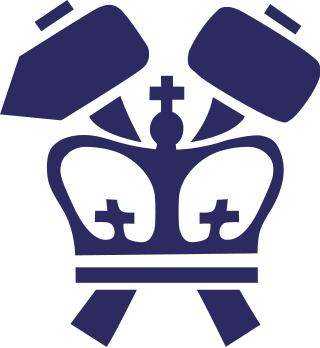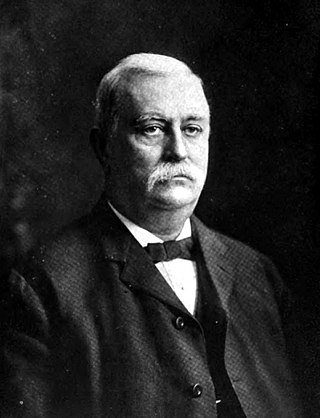
Eric Allin Cornell is an American physicist who, along with Carl E. Wieman, was able to synthesize the first Bose–Einstein condensate in 1995. For their efforts, Cornell, Wieman, and Wolfgang Ketterle shared the Nobel Prize in Physics in 2001.

Charles Stark "Doc" Draper was an American scientist and engineer, known as the "father of inertial navigation". He was the founder and director of the Massachusetts Institute of Technology's Instrumentation Laboratory, later renamed the Charles Stark Draper Laboratory, which made the Apollo Moon landings possible through the Apollo Guidance Computer it designed for NASA.

Hideki Shirakawa is a Japanese chemist, engineer, and Professor Emeritus at the University of Tsukuba and Zhejiang University. He is best known for his discovery of conductive polymers. He was co-recipient of the 2000 Nobel Prize in Chemistry jointly with Alan MacDiarmid and Alan Heeger.

The Fu Foundation School of Engineering and Applied Science is the engineering and applied science school of Columbia University, a private research university in New York City. It was founded as the School of Mines in 1863 and then the School of Mines, Engineering and Chemistry before becoming the School of Engineering and Applied Science. On October 1, 1997, the school was renamed in honor of Chinese businessman Z.Y. Fu, who had donated $26 million to the school.
The MIT Laboratory for Information and Decision Systems (LIDS), which founded in 1940, is an interdisciplinary research laboratory of MIT, working on research in the areas of communications, control, and signal processing combining faculty from the School of Engineering, the Department of Mathematics and the MIT Sloan School of Management. The lab is located in the Dreyfoos Tower of the Stata Center and shares some research duties with MIT's Lincoln Laboratory and the independent Draper Laboratory.

Karl Taylor Compton was a prominent American physicist and president of the Massachusetts Institute of Technology (MIT) from 1930 to 1948. A professor of nuclear physics at Princeton, Compton was recruited to MIT to promote instruction and research in basic science rather than MIT's previous emphasis on vocational training.

The Fannie and John Hertz Foundation is an American non-profit organization that awards prestigious fellowships to Ph.D. students in the applied physical, biological and engineering sciences. The fellowship provides students with up to $250,000 of support over five years, giving them flexibility and the ability to pursue their own interests, as well as mentoring from alumni fellows. Fellowship recipients pledge to make their skills available to the United States in times of national emergency.
The MIT Department of Economics is a department of the Massachusetts Institute of Technology in Cambridge, Massachusetts.
Ernst Adolph Guillemin was an American electrical engineer and computer scientist at the Massachusetts Institute of Technology who spent his career extending the art and science of linear network analysis and synthesis. His nephew Victor Guillemin is a math professor at MIT, his nephew Robert Charles Guillemin was a sidewalk artist, his great-niece Karen Guillemin is a biology professor at the University of Oregon, and his granddaughter Mary Elizabeth Meyerand is a Medical Physics Professor at the University of Wisconsin-Madison.
The Donald P. Eckman Award is an award given by the American Automatic Control Council recognizing outstanding achievements by a young researcher under the age of 35 in the field of control theory. Together with the Richard E. Bellman Control Heritage Award, the Eckman Award is one of the most prestigious awards in control theory.
The IEEE Donald G. Fink Prize Paper Award was established in 1979 by the board of directors of the Institute of Electrical and Electronics Engineers (IEEE) in honor of Donald G. Fink. He was a past president of the Institute of Radio Engineers (IRE), and the first general manager and executive director of the IEEE. Recipients of this award received a certificate and an honorarium. The award was presented annually since 1981 and discontinued in 2016.
The John Fritz Medal has been awarded annually since 1902 by the American Association of Engineering Societies (AAES) for "outstanding scientific or industrial achievements". The medal was created for the 80th birthday of John Fritz, who lived between 1822 and 1913. When AAES was dissolved in 2020, the administration of the Fritz medal was transferred to the American Institute of Mining, Metallurgical, and Petroleum Engineers (AIME), and is currently coordinated by AIME member society, the Society of Mining, Metallurgy, & Exploration (SME).

S. Hamid Nawab is Professor of Electrical and Computer Engineering and Biomedical Engineering at Boston University who is a researcher, educator, and engineer in the signal processing and machine perception subfields of Electrical Engineering and their application to the machine/computer analysis of complex biosignals from auditory, speech, and neuromuscular systems.

Alfred Noble was an American civil engineer who was best known for his work on canals, particularly the Soo Locks between the Great Lakes of Huron and Superior, and the Panama Canal. Born in Livonia, Michigan to farmers Charles Noble and Lovina Douw, Noble was locally educated. He served in the Union Army from 1862 to 1865, after which time he entered the University of Michigan as a sophomore. Noble graduated with his University of Michigan class in June 1870, receiving his degree in civil engineering at age 26. After graduation, Noble went to work full-time on harbor surveys and improvements along the shores of Lake Michigan and Lake Huron.

Herbert Graves Winful is a Ghanaian-American engineering professor, whose honours include in 2020 the Quantum Electronics Award. He is the Joseph E. and Anne P. Rowe Professor of Electrical Engineering, Arthur F. Thurnau Professor of Electrical Engineering and Computer Science, and a Professor of Physics at the University of Michigan.









